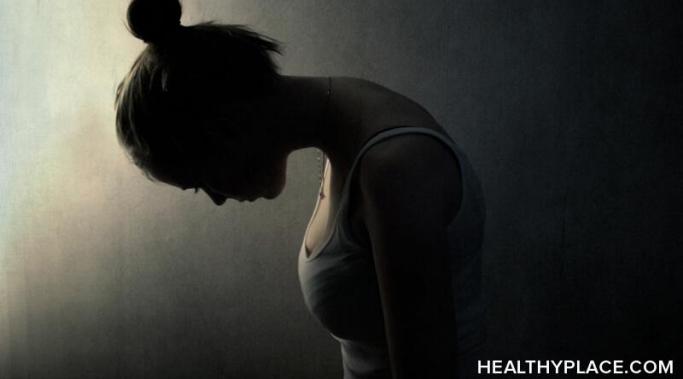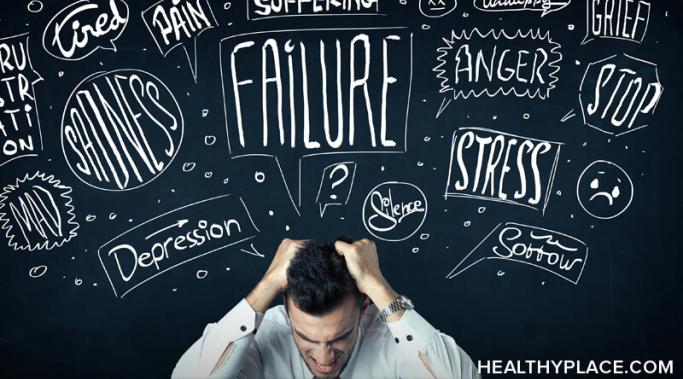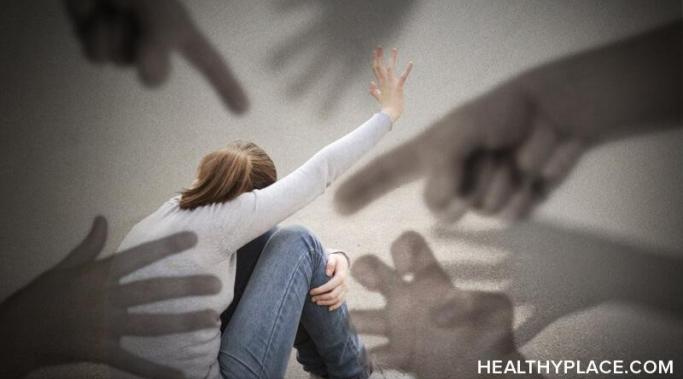Recently, a report by the U.S. Preventive Services Task Force recommended that every adult under 65 be screened for anxiety by their primary care doctors (family doctors). When I first saw the headline, my initial response was, "Well, that's stupid. You go to the doctor when you're sick, and people know when they're sick." But, upon second thought, I realized this was wrong. Screening for anxiety in general doctor's appointments does make sense.
Understanding Mental Illness
Today is World Suicide Prevention Day, and so the question arises: no matter what we do, can we prevent all suicides? I think even the most ardent suicide-prevention groups would admit that we can't prevent all suicides. There are many reasons for this, including the fact that people often decide to end their life mere moments before they do it, and it's hard to get to those people in those moments. Nonetheless, can we still chip away at the number of suicides? Can we really prevent most suicides? (Note: This post contains a trigger warning.)
I can't stop crying. It's because of personal loss and depression; I know this. But it seems that all the knowledge in the world doesn't help. It seems like I just manage to right the ship, and then I find myself in a pool of brackish water again. Not everyone with depression reacts this way, but I cry far more than my fair share. No matter what I do, I just can't stop crying.
Recently a friend ruined my mental health. Well, a friend combined with preexisting bipolar disorder, ruined my mental health. I don't believe in blaming people for mental health problems, per se; but, sometimes people do things that are so damaging, a change in mental health really is pretty much their fault. So, what do you do when a friend ruins your mental health?
I can't stop insulting myself. I'm depressed, and that's one of the things that I do when I'm depressed. The insults I say at myself are unbelievably harsh and things I would never say to anyone else. But even though I know that it's the depression, and even though I know that it's negative and harmful, I just can't stop insulting myself.
I've recently, painfully, discovered that stress increases anxiety to interminable levels. Stress, of course, worsens one's mental health in many ways, but the way that I'm primarily feeling it is through anxiety (and probably depression; anxiety and depression being knitted together as they are). Previously, I didn't have the anxiety problems I do today, and I didn't realize just how bad anxiety could feel until this latest bought of stress increasing my anxiety.
"He's totally psychotic." "My breakup was totally psycho." How many times have you heard those types of phrases? I've heard it many, many times. While it's pretty common these days to have some knowledge about mental illness terms, psycho, psychotic, and even psychosis tend not to be understood. Let's delve into the meanings of psycho, psychotic, and psychosis, both from a common vernacular point of view and from an accuracy point of view.
One of the main differences between bipolar I and bipolar II is that bipolar II experiences hypomania and not mania. Last week I wrote from the perspective of a hypomanic mind, but what is hypomania really? Is hypomania fun or is it just plain crazy?
Bipolar is usually medicated to a manageable level. In other words, people with bipolar disorder who are on medication are not "back to normal," rather, they still exhibit some bipolar traits but at a manageable amount. This is completely different from what I was told for years after diagnosis, and it's also different from what people see in the media. People seem to think that a pill will make the person back to who they were before the bipolar disorder. I'm sorry to say, this just isn't true for the vast majority of us.
I've had the signs of mental illness in my life since I was a child but didn't receive treatment until I was 19-20; so, why didn't I get treatment for bipolar disorder earlier? This is a question that many people ask themselves, and different people answer it in different ways. One of my major reasons for not getting bipolar treatment sooner involves antipsychiatry.









